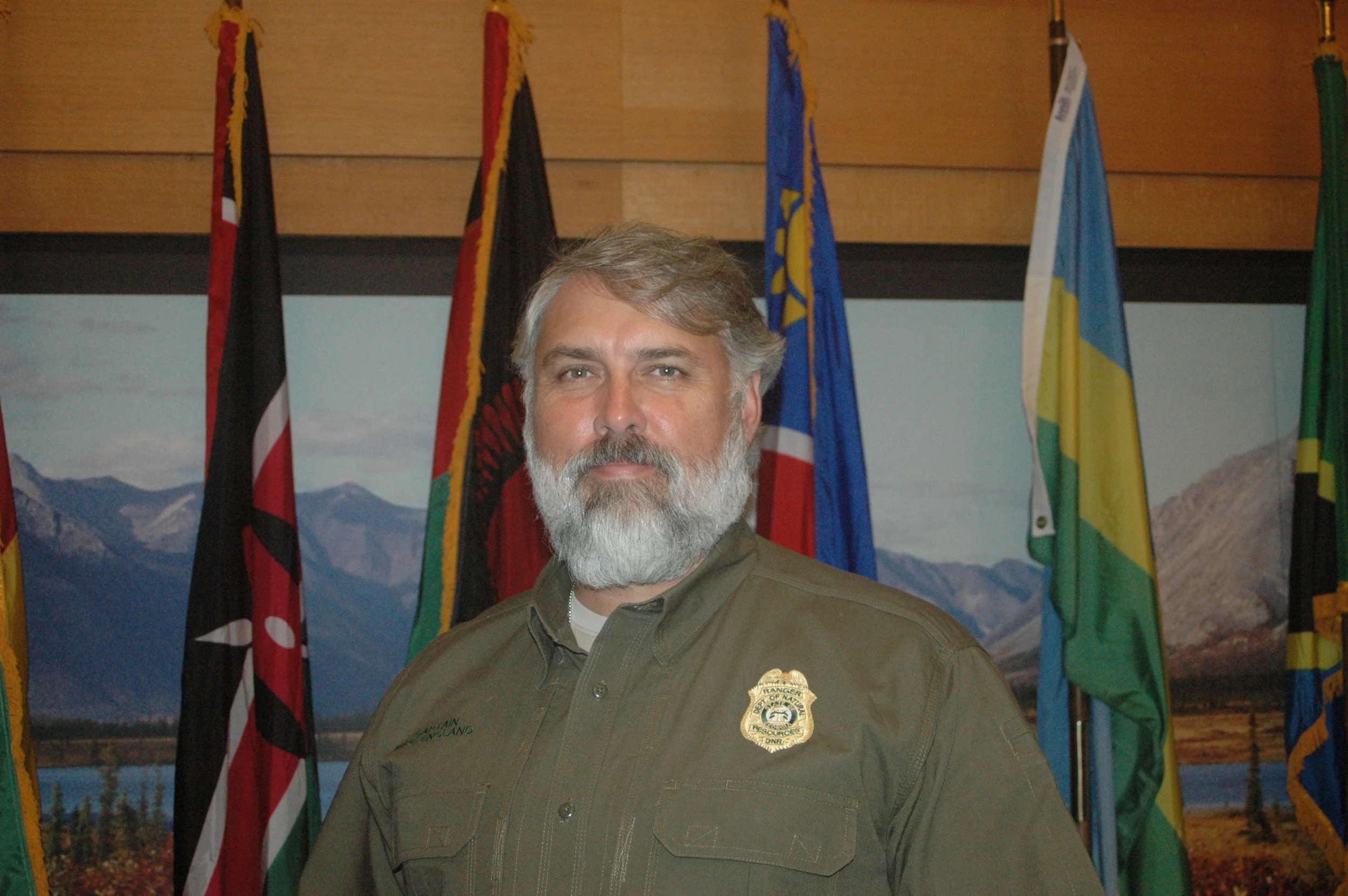Mike England
National Conservation Training Center, Shepherdstown, West Virginia---Hunters and anglers who have had their license privileges taken away in one state are also out of luck if they want to hunt or fish in 45 other states.
That is because 45 states have adopted the Wildlife Violator Compact, which is a pro-active approach to deter violators from hunting and fishing in other states when their license privileges have been revoked in their home state.
Mike England, a Captain in the Law Enforcement Division of the GeorgiaDepartment of Natural Resources told 42 African conservation officials attendingtheInternational Conservation Chief’s Academy (ICCA) that the Violator’s Compact was modeled after the Driver’s License Compact, where a suspended license in one state is honored by other states.
“The idea began in 1985 when Nevada and Colorado agreed that they didn’t want violators from the other state to be hunting in their state, and then in 1989 Oregon joined and created a formal program,” England said.
By 2003 all of the western states were members of the compact and today 45 states are members. Nebraska will become the 46th state to join the compact effective November 7, 2017 and New Jersey will become the 47th state to join the compact effective December 1, 2017.
“Today, every state other than, Hawaii, Delaware, and Rhode Island have joined the Compact,” England said.
The requirements are that the state must provide legal authority, by passing a law or resolution in the legislature, giving authority for the state to participate. The state then agrees to comply with the rules of the Compact and sends an agreement to the chair of the Wildlife Violator Compact.
The Compact keeps a database of revoked privileges to hunt and fish.
“The Compact is important because of the mobility of law violators in order to protect and manage our wildlife resources for the benefit of all sportsmen,” England said.
The Compact also provides a strong incentive for a violator who receives a ticket but does not show up for court to pay up for their violation to appear in court or post bond. If they do not show up in court or pay their violation, the compact can suspend their license. Once the person posts bond, that can then be removed.
The Compact also benefits states by allowing reciprocal recognition of license suspension, and allows conservation officers to stay in the field enforcing laws rather than having to take a non-resident violator to the local courthouse.


